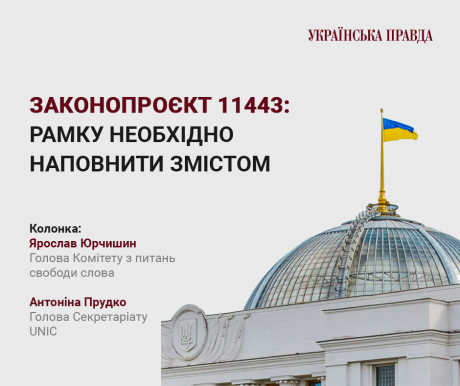The Fight Against Corruption in Ukraine: A Formal Approach or Genuine Implementation of OECD Standards?

Fundamental rights, the rule of law, and the fight against corruption are not just words voiced at Ukraine’s negotiations with the European Union. They are real challenges that must be addressed today. One such challenge is the liability of legal entities for corruption offenses. Draft law No. 11443, adopted by the Verkhovna Rada as a basis, can either become an important step forward, or it may turn into a “framework” law that changes nothing in practice, adopted solely to continue negotiations on membership in the Organisation for Economic Co-operation and Development (OECD) and the EU. So, are we truly ready to change the rules and fight internal corruption?
Ukraine seeks to join the OECD — a club of the world’s leading economies. To do this, we must demonstrate the ability to implement the best international practices. The OECD Anti-Bribery Convention requires that companies, not just individuals, can be held liable for corrupt acts. In Ukraine, this issue remains “suspended.” The current mechanism is archaic, ineffective, and practically non-functional. Over the past 10 years, there have been only four (!) convictions against legal entities.
Why is that? Investigators and prosecutors simply have no incentive to take on complex cases involving companies. And business? It often becomes a victim of law enforcement, when criminal proceedings are used as a tool of pressure rather than as a means of achieving justice.
Draft law No. 11443 aims to change this reality. The new provisions would create mechanisms allowing companies to take responsibility for offenses, cooperate with investigations, and at the same time avoid unnecessary repression. This is a chance for honest businesses to step out of the shadow of corruption schemes and build transparent relations with the state.
However, the current version of the draft law has significant shortcomings. It is more focused on combating international corruption, while domestic corruption risks remain overlooked. Yet OECD standards demand more.
What should be changed before the second reading?
First, the law must extend its scope to domestic corruption and commercial crimes. Second, clear rules for initiating proceedings against companies should be established to prevent abuse by law enforcement. Third, excessive non-financial sanctions that can destroy businesses should be replaced with proportionate and lawful measures.
This reform is more than just fulfilling EU integration obligations. It is an opportunity to change the approach to conducting fair and transparent business in the country. A properly implemented law would send a signal: Ukraine is ready to play by the rules of the civilized world.
The political decision has already been made. Now it is crucial for lawmakers to fill the framework of the law with substance. Otherwise, there is a risk of ending up with yet another formality that remains only on paper.
We face two paths. The first — to adopt an effective law that meets international standards and protects the interests of both business and the state. The second — to follow the path of minimal compliance, and later, under pressure from the international community, introduce changes. The choice is ours.
Yes, OECD standards are quite broad, but they should not be perceived as permission for minimal compliance. If we now limit ourselves to only the minimum required for admission to the OECD Working Group on Bribery, this will only delay the process and force us to return to reforms after the law is adopted. The OECD has a deep understanding of real problems and will distinguish true reform from mere formality. Therefore, if we take the path of minimum effort, we will lose valuable time. Instead of implementing real change, we will simply postpone it until later, when international partners once again demand real steps in the fight against corruption.
This reform is not only about the OECD or European integration. It is about what our economy will look like tomorrow. Business must operate transparently, and the state must be its partner, not its enemy. Draft law No. 11443 is a test. A test of maturity. A test we are simply obliged to pass.
Authors
Yaroslav Yurchyshyn, Head of the Committee on Freedom of Speech
Antonina Prudko, Head of the UNIC Secretariat
Specially for Ukrainska Pravda




